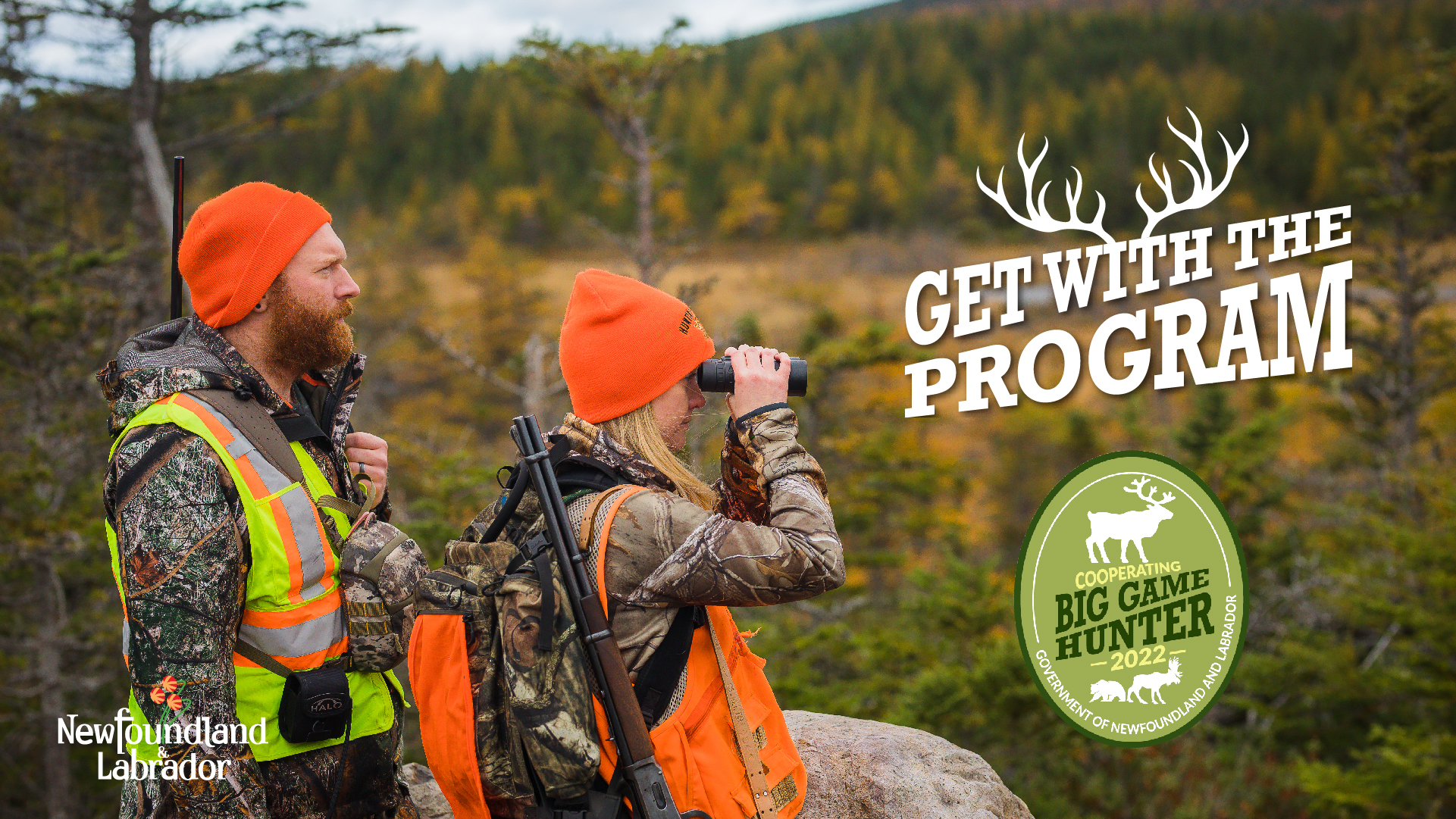With the recent opening of the 2022-23 big game hunting season, hunters and trappers are encouraged to continue supporting wildlife management efforts by submitting crucial information from the annual hunt to the Department of Fisheries, Forestry and Agriculture.
Wildlife managers use the valuable information hunters and trappers submit to make science-based recommendations about wildlife management, including quotas and regulatory changes.
- Hunter Return Forms – These forms provide a picture of the trends hunters observe in the field including harvest success rates, hunt duration, number and sex of moose observed, sex of harvested moose, and harvest locations. This information helps biologists monitor the status of moose populations and flags any changes in hunter behaviour or moose populations that may occur between annual aerial surveys. Successful hunters, including those from last season who have not yet done so, are encouraged to submit their hunter return forms as soon as possible.
- Moose and Caribou Jawbone Collection Program – Jawbones collected from harvested moose and caribou provide wildlife managers with information on the health and status of populations, including age and growth patterns, condition, productivity, and recruitment. All moose and caribou hunters are encouraged to cooperate; however, due to our limited harvest of caribou on the Island, it is very important that all resident and non-resident caribou hunters make a special effort to submit the lower jawbone of their harvest at the nearest Jawbone Drop Box. All participating big game hunters will receive a Cooperating Big Game Hunter Crest for supporting research and management objectives.
- Black Bear Tooth Collection Program – Analyzing the teeth of harvested black bears helps us better monitor bear populations, make management decisions, evaluate black bear hunting trends, and evaluate the age structure and reproductive success of their population. Successful bear hunters can return information using the tooth envelope and instructions included with their licenses. All participating black bear hunters will also receive a Cooperating Big Game Hunter Crest.
- Canid Collection Program – Samples collected from canid carcasses determine whether an animal is a coyote, wolf, or hybrid of both, which helps wildlife managers monitor for the presence of wolves/hybrids on the island, and determine the distribution of coyotes and number of wolves harvested in Labrador. This program benefits significantly from canid samples that have been harvested through trapping, and wolf and coyote hunters and trappers throughout the province can submit carcasses to their nearest Forestry and Wildlife district office. A $25.00 fee will be paid for canid carcasses.
All hunters and trappers are reminded to follow firearm and hunting safety practices at all times. Additional information related to wildlife regulations, hunting season dates, bag limits and other hunting safety reminders is available in the 2022-23 Hunting and Trapping Guide.
Quote
“Licensed hunters and trappers are our eyes and ears on the ground, and our wildlife managers rely on their input to ensure a sustainable, balanced annual hunt. It is imperative that we garner support from the hunting public to provide harvest information, particularly from the island caribou hunt. I encourage all hunters to get involved with our wildlife management programs and submit their hunter return forms, big game jawbones, black bear teeth, or canid carcasses to the department to help manage and conserve our valuable wildlife populations.”
Honourable Derrick Bragg
Minister of Fisheries, Forestry and Agriculture
-30-
Lean more
News Release: Sunday Hunting Permitted throughout Hunting and Trapping Season
Big Game Season: New for 2022-23
2022-23 Hunting and Trapping Guide
Moose Management Area Maps and Population Information
News Release: New Five-year Plan Outlines Sustainable Approach to Moose Management
Follow us on Twitter @GovNL and @FFA_GovNL
Like us on Facebook
Media contact
Erin Shea
Fisheries, Forestry and Agriculture
709-729-2575
erinshea@gov.nl.ca
